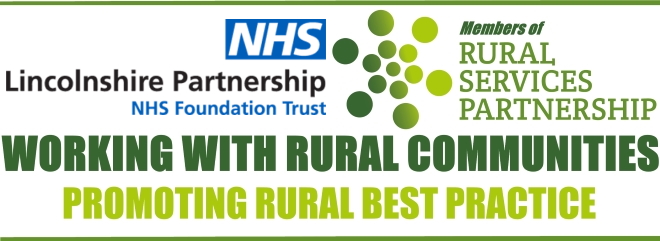T: 01822 851370 E: [email protected]
RSN Voices Serious Concerns Over ‘Fairness’ Of Settlement
Read here...
“Are you thinking about suicide?”

By Fiona Bone, Suicide Prevention Lead at Lincolnshire Partnership Foundation NHS Trust
Asking directly is absolutely the right thing to do if you are worried about someone. And with just over 50 people who work in farming taking their own lives each year – we need to start talking about mental health now.
We know many people worry about asking directly about suicide in case they 'give someone the idea', but there is no evidence that talking about suicide can be harmful - quite the opposite in fact. Evidence suggests that talking to someone, and asking the question directly can diffuse a situation.
Having worked in mental health services in Lincolnshire for many years, I know that farmers are proud people and wouldn’t necessarily feel comfortable asking for help. In fact, we think they would rather speak to someone in their own community rather than talking to a health professional - and that’s ok. That’s where we need you to help.
We all need to play our part. Just a quiet word asking, are you ok? Let them tell you. Let them know help is available. ASK.TELL.HELP. Don’t be afraid to ask ‘are you thinking about suicide?’
Have an open mind before beginning to discuss suicide with someone, if you are willing to talk about it with them it will encourage them to feel comfortable enough to talk about it too. And just listen – don’t judge.
I would really recommend taking the free Zero Suicide Alliance training to give you the skills and confidence to have a potentially life-saving conversation with someone you’re worried about. It takes between 5 and 20 minutes and it will, I guarantee, give you what you need to make a real difference. www.zerosuicidealliance.com/training.
Suicide is everyone’s business.
Myths:
Myth 1: Talking about suicide will put the idea in their head and make them more likely to do it.
Fact: It is safer to ask about suicide than not to. Research shows it is not dangerous to ask. If the answer is yes, the person can be supported. If the answer is no, no harm done. People often find great relief in being able to openly talk about their thoughts and feelings of suicide.
Myth 2: Talking about suicide is attention seeking behaviour.
Fact: Anyone considering suicide needs attention. They are in pain ad may feel hopeless. Most people who die by suicide have talked about it first. We should always take seriously anyone talking about suicide.
Myth 3: Most suicides happen with no warning.
Most people struggling with thoughts of suicide find a way to communicate that they need help, sometimes these are at an unconscious level. However, sometimes these signs can be missed, dismissed or avoided. It is important to be alert to potential warning signs and be prepared to ask about suicide if you are concerned for someone else.
Myth 4: If someone tells a professional about their thoughts of suicide, they will be sectioned and admitted to hospital.
Fact: If a person has thoughts of suicide with no mental illness it is very unlikely, they will be sectioned.
Myth 5: Thinking about suicide is rare and unusual.
Fact: Thinking about suicide is part of being human. Anyone has the potential to have thoughts of suicide. One in five people have thought of taking their own life at some point in their lives. One in 15 are estimated to have made an attempt at some point in their life.
Signs to look out for:
- Continually lacking energy and enthusiasm
- Becoming anxious, irritable or confrontational
- Mood swings
- Acting recklessly
- Sleeping too much or too little
- Isolating themselves from others
- Not enjoying things they used to, always focusing on the negatives
- Having more problems with work or studies
- Using drugs or alcohol to cope with certain situations
- Not taking care of themselves or self-loving and hatred
- Discussing or mentioning suicide
Help is available:
If you live in Lincolnshire, and need help give us a call us on 0800 001 433 (Open 24/7). If you are under 18, call Here4you advice and self-referral line on 0800 234 6342 (Open 24/7).
More information: Visit www.lpft.nhs.uk/suicide or www.samaritans.org
Download the Stay Alive App via the App store



